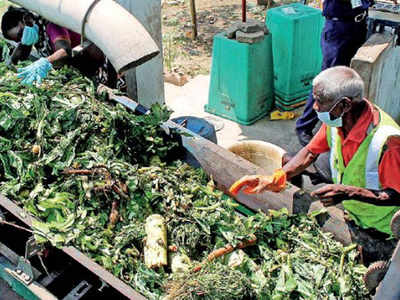The Hindu 16.08.2013
Zero-Waste Chennai is possible

Zero waste is both a goal and a plan of action. The goal
is to ensure resource recovery and protect scarce natural resources by
ending waste disposal through incinerators, dumping, and landfills. The
plan encompasses waste reduction, composting, recycling and reuse,
changes in consumption habits, and industrial redesign. In a zero waste
approach, waste management is not left only to politicians and technical
experts; rather, everyone impacted – from residents of wealthy
neighbourhoods to people living around city’s waste dumps, private, and
informal sector workers who handle waste – all have a voice. Let us look
at some zero waste communities.
Flanders, Belgium
The Flemish region of Belgium, Flanders, has become
the torchbearer of waste management in Europe. Through various policy
and community interventions, it has achieved the highest waste diversion
rate in Europe – almost three-fourths of residential waste produced in
the region is reused, recycled, or composted, and it has managed to
stabilise waste generation. Approximately 4,900 tons of organic
materials were composted or treated through anaerobic digestion every
day. By 2010, approximately two million people started composting at
home. The most unique aspect of the model is that the per capita waste
generation has held steady since 2000, showing a rare example of
economic growth without increased waste generation.
Pune, India[1]
Over the last two decades, Pune’s waste pickers have
created a remarkable transformation in their city’s municipal waste
management system and in their own lives. These informal sector
collectors of recyclable materials formed a union to protect their
rights and bring dignity to their work. The union has been so successful
that it has allowed them to implement door-to-door collection covering
nearly 500,000 homes. As a result, the rates of source separation, and
separate treatment for organics is progressively improving across Pune.
The cooperative of waste pickers diverts enough waste to avoid 640,000
tons of greenhouse gas emission and saves the city corporation nearly
Rs.90 lakh annually[2].
Taiwan, China
The island of Taiwan faced a waste crisis in the
1980s because of lack of space to expand its landfill capacity. When the
government turned to large-scale incineration, the community’s fierce
opposition not only stopped the construction of dozens of burners, but
also drove the government to adopt goals and programmes for waste
prevention and recycling. Since then, waste generation in Taiwan dropped
from 8.7 million tons to 7.95 million tons between 2000 and 2010,
despite a 47% increase in GDP in the same period. The Taiwan
Environmental Protection Agency (TEPA) adopted zero waste goals in 2003
which among other measures laid strong emphasis on Extended Producer
Responsibility (EPR) – making producers responsible for changes in
design and production to reduce the waste generated by their products
and packaging.
Alaminos, Philippines[3]
Alaminos is at the forefront of implementing the
Philippines’ decentralised waste management law. Through an NGO
partnership, village leadership has established comprehensive zero waste
strategies, including backyard and village-level composting, source
separation programs, and small-scale sorting facilities.
As
a result, open burning and dumping have virtually ended. All this was
made possible by a bottom-up planning process that brought together
local officials and stakeholders.


